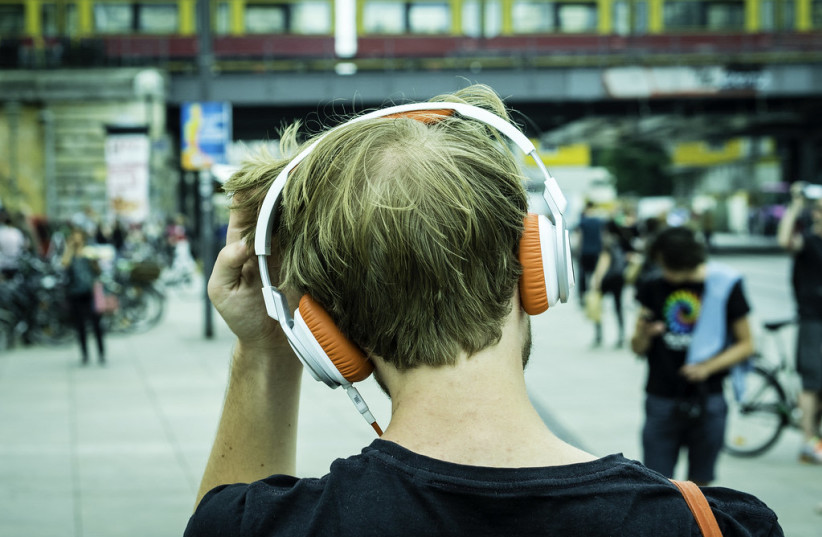Earphones have become a part of our daily routine, whether you use them to listen to music or podcasts or to talk on the phone, but do they harm us?
Studies prove that there is a higher percentage of hearing impairment among people who use earphones often, as a result of prolonged exposure to noise, compared to those who use earphones less or not at all.
Generally, exposure to noise is harmful and is a common cause for downgrading hearing, especially among older people. Even so, lately, scientific evidence point to a significant rise in hearing impairment among the young population as a result of prolonged exposure to music through earphones at a high volume.
Riham Khoury Farakh, an audiologist in the Experts Center at Maccabi Health Services, told Maariv about the significance of the damage.
"Contrary to what happens naturally in the human body, the hairs are damaged in the inner ear and don't grow back, so the damage that is done is irreversible, and the result is permanent damage to your hearing."
Riham Khoury Farakh
Why do earphones damage hearing?
"Listening to music at a high volume for a long time through earphones damages the small hair cells in the inner ear and causes permanent damage," she said. "Contrary to what happens naturally in the human body, the hairs are damaged in the inner ear and don't grow back, so the damage that is done is irreversible, and the result is permanent damage to your hearing."

What noises damage hearing?
Accoridng to Farakh, sounds that are damaging to hearing are sounds like gunshots and explosions – sounds that are often heard during military service. Other damaging sounds include loud music that is heard at places such as events and concerts.
"Often the lesser hearing comes with humming in the ears or a phenomenon called tinnitus which is an early sign of damaged hearing," she said. "According to the professional literature, prolonged exposure of two hours to the noise of 85 decibels can cause irreversible damage to hearing. The exposure time gets shorter the higher the volume gets so exposure of only a few minutes to 100 decibels is enough to impair hearing.
How can we protect our hearing?
"It's recommended to use ear protectors such as earplugs," said Farakh. "Lowering the volume when listening to music through earphones will help as well as only listening to music through earphones for limited amounts of time and allowing the ear to rest with frequent breaks."
How do you choose the right earphones?
"The type of earphones has a high effect on our hearing, so it's best to choose headphones that cover the whole ear like Supra-aural headphones, which provide a higher quality of sound than earphones that are inserted into the ear.
"If you choose Supra-aural headphones, it's important to note that there are two main types: Open headphones that provide an exact good-quality bass sound but allow the sound to leak out and closed headphones that seal in the ear and allow high-quality listening while preventing acoustic leaking of sounds. These, however, cause the ears to warm and make you sweat with prolonged use."
What do you do if you experience difficulty hearing or humming in the ears?
"In these cases, it's a shame to wait. It's recommended to turn to an ear, nose and throat doctor as soon as possible for a checkup and request a referral to a hearing test to get a professional opinion."
